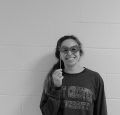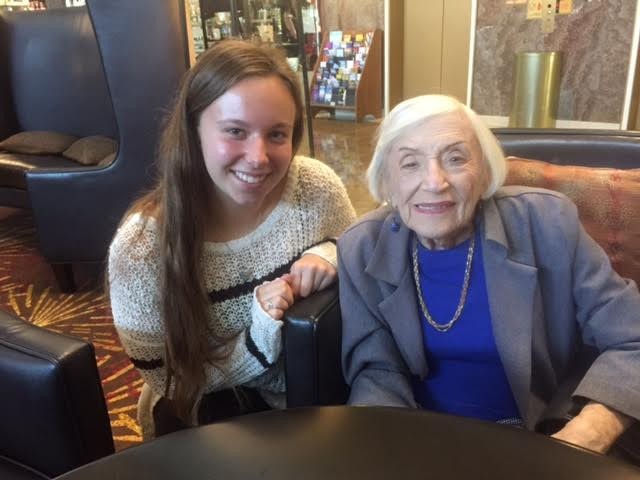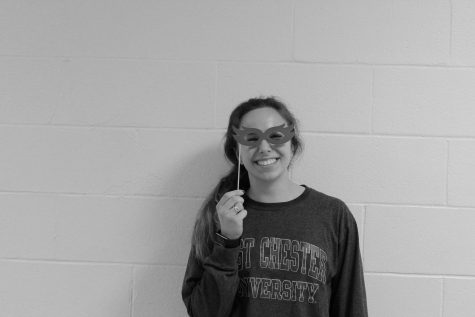In the end of October, the Pascack Valley auditorium was packed with members of the schools and greater community to hear the incredible story of Marthe Cohn, a Jewish French woman who became an intelligence officer during World War II. Marthe Cohn’s small stature in no way indicates the powerful presence and inspirational messages she has.
Mrs. Cohn was born in Metz, France in 1920. She studied to become a nurse, but little did she know the path of her future would make a sharp, dangerous turn. She enlisted into the French army as a nurse and soon became an intelligence officer. Everyone in the room was captivated by her story, which left much of the audience – including me – in awe and wonder. I had the privilege of sitting down with Mrs. Cohn for an interview to dive more deeply into her story.
She greeted me with a warm smile and friendly handshake. Without hesitation, she began answering my questions. The first question we spoke about was if she holds any grudges towards the Germans after World War II. She responded with a quick no because “you can find bad everywhere.” Mrs. Cohn amazed me with her answers and reasons she shared and this was one of them. She told me a story about when she was in nursing school. Jews were discriminated against in this career, yet the doctor, who was the chief of police, never treated her any differently than a non-Jew. She explained the reason for this was because “things were very grey. They were not black and white.”
Hearing about her stories illustrates that Mrs. Cohn was and still is incredibly strong. In 1944-1945 the winter was cold. She had to trek across a snow-covered field and fell in a canal. Amazingly, she never caught a cold or got injured. However, she spoke about the overwhelming sense of fear she experienced and how paralyzed she became at the threshold of Germany. Eventually, she overcame it and marched into enemy territory undercover and alone.
Another question was if she considers herself a survivor. She responded, “I survived over four years of terror. French, Jew, or not Jew, we’re survivors too.” There are two messages she wants me to bring back to the student body. First, “be engaged” and that can be anything; you don’t have to do a huge deed to be engaged. Secondly, “do not accept any other than your conscience would accept.”
She shared with me her life story and indirectly explained life lessons and values, and for that I am grateful to have shared an afternoon learning about her life. Her selflessness and inspiration to all is remarkable; she is a true heroine.











































